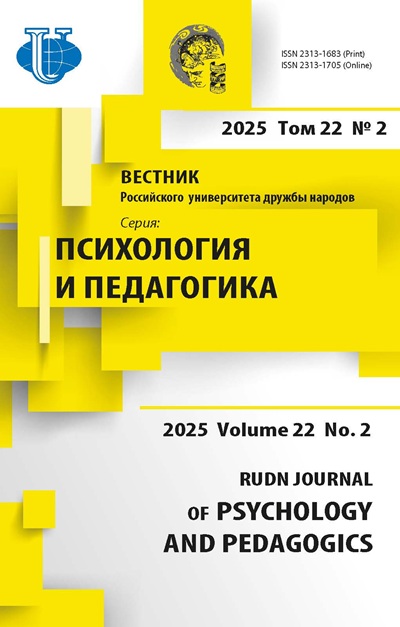ПСИХОЛОГИЧЕСКИЕ ОСОБЕННОСТИ АДАПТИВНОСТИ АФРИКАНСКИХ СТУДЕНТОВ
- Авторы: Бадалова ЛИ1
-
Учреждения:
- Московский государственный институт международных отношений (Университет)
- Выпуск: № 4 (2015)
- Страницы: 51-56
- Раздел: Статьи
- URL: https://journals.rudn.ru/psychology-pedagogics/article/view/13450
- ID: 13450
Цитировать
Полный текст
Аннотация
В статье анализируются результаты эмпирического исследования адаптивности как базового свойства личности, выполненного на выборке представителей африканских студентов из разных стран. Диагностика проводилась с помощью сокращенного варианта бланковой методики, разработанной А.И. Крупновым, далее был проведен качественный анализ выраженности компонентов адаптивности и связей между ними с применением корреляционного анализа. Качественный анализ степеней выраженности структурных компонентов адаптивности показывает, что наиболее высокие значения имеет шкала «адаптация». Это свидетельствует о высоком уровне приспособленности африканских студентов к новой социокультурной среде, в которой они обучаются. Проблемной зоной адаптивности испытуемых является высокая выраженность шкал «ностальгия» и «отчужденность». Переживание этих чувств сопровождается негативным эмоциональным фоном и затрудняет вхождение студентов в новый социум. Развитие уверенности в себе и работу с аффективностью можно рассматривать в качестве серьезных ресурсов, которые через положительную связь со слабыми сторонами адаптивности способны компенсировать и корректировать их негативное воздействие. Одновременно отмечается связь переменной «ностальгия» с переменной «адаптация». Этот феномен свидетельствует о позитивной роли переживания чувства тоски по родине и близким для повышения степени адаптированности африканских студентов. Речь идет о двунаправленной функциональной способности ностальгии и ее ценности для успешной интеграции личности в новую социальную среду.
Ключевые слова
Об авторах
Л И Бадалова
Московский государственный институт международных отношений (Университет)Кафедра французского языка № 2
Список литературы
- Абрамов К.В. Особенности социально-психологической адаптации молодежи в условиях трансформирующегося общества // Вестник Тверского государственного университета. Серия «Педагогика и психология». 2010. № 8. С. 92-101.
- Волк М.И., Акимова А.Р. Соотношение переменных уверенности и общительности с показателями адаптированности у различных групп студентов // Вестник РУДН. Серия «Психология и педагогика». 2010. № 1. С. 52-56.
- Маслова О.В. Особенности межкультурной адаптации латиноамериканских студентов в России // Вестник РУДН. Серия «Психология и педагогика». 2012. № 2. С. 50-59.
- Новикова И.А. Толерантность как условие эффективного взаимодействия в поликультурном образовательном пространстве // Психология образования в поликультурном пространстве. 2015. № 29. С. 52-62.
- Системные исследования свойств личности: к 30-летию научной школы А.И. Крупнова в РУДН: коллективная монография / научн. ред. А.И. Крупнов, С.И. Кудинов, И.А. Новикова. М.: РУДН, 2014.
- Фомина Н.А., Бакова И.В. Связь общительности и особенностей личностной адаптированности студентов // Вестник РУДН. Серия «Психология и педагогика». 2010. № 1. С. 48-51.
- Чеботарева Е.Ю. Стили межкультурной адаптации иностранных студентов в России // Социально-психологическая адаптация мигрантов в современном мире: Материалы 2-й Международной научно-практической конференции / отв. Ред. В.В. Константинов. М.: Перо, 2014. С. 181-187.
Дополнительные файлы















